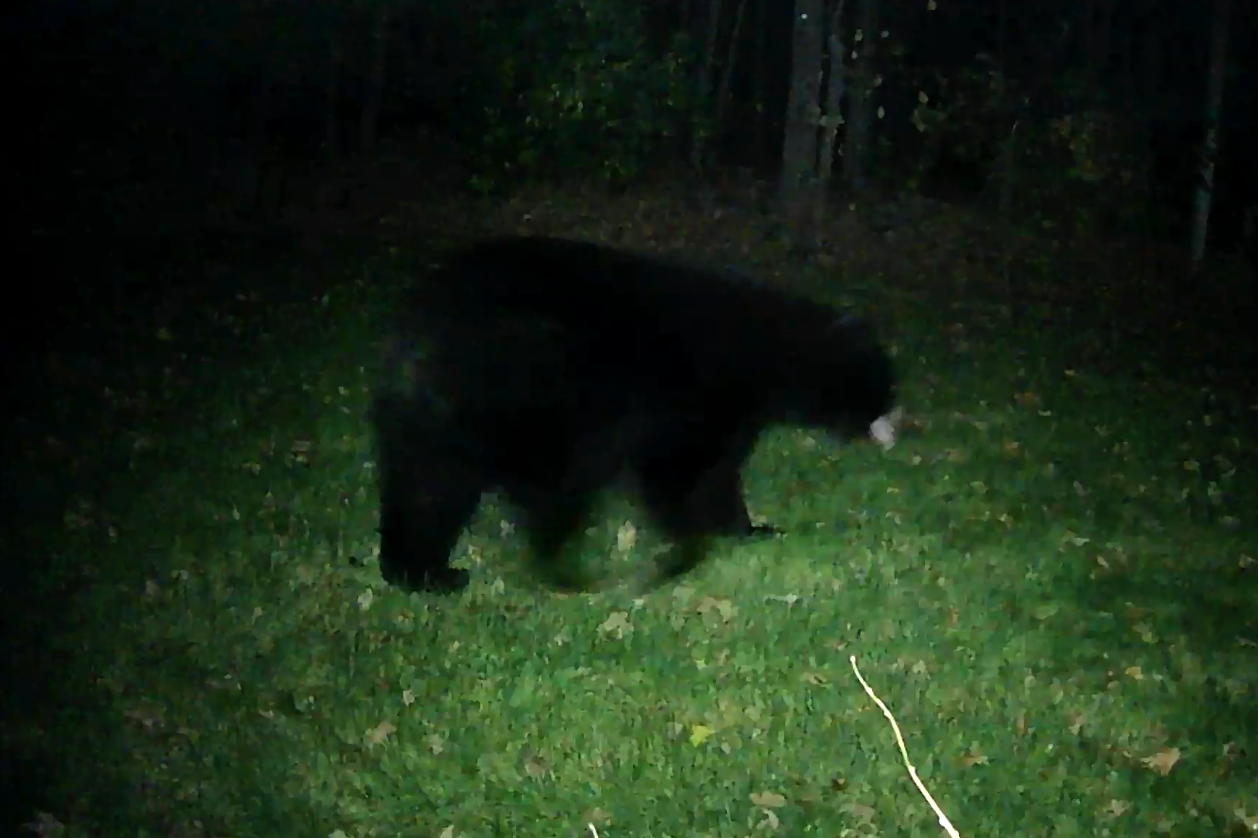Gourds are a versatile and beautiful fruit that can be used for a variety of purposes, we use them as bird feeders.
But when bear season begins, it’s time to bring gourd season to a quick end.
Bears are omnivores, meaning they eat both plants and animals.
And while they’re not typically aggressive toward humans, they will be attracted to any food source they can find.
That includes gourds, which are sweet and nutritious.
 The other night we were alerted by our many security cameras that something was on our property.
The other night we were alerted by our many security cameras that something was on our property.
Upon viewing the live video we were very surprised by what we saw, a large Black Bear, strolling through the Garden studio.
She headed over to our hanging gourd bird feeder knocked it down and began feeding on the seeds and the pumpkin that contained them.
We were able to watch it all unfold live and I have to say, I was thrilled!
This was the first confirmed Black Bear on our property.
Black Bears are the largest predators in Massachusetts, so it was a happy day for me.
I have now captured images of Fishers, Grey Foxes, Red Foxes, Coyotes, Bobcats, and a Black Bear.
My hope is that like all of the others, the bear will come back regularly.
But I suspect she will not, she was clearly pregnant and fattening up for the Torpor.
I should explain that Bears do not truly hibernate, but they do enter a state of deep sleep called torpor.
Torpor is a natural adaptation that helps bears conserve energy during the winter months when food is scarce.
During torpor, a bear’s heart rate, breathing rate, and metabolic rate slow down significantly.
Their body temperature also drops slightly, but not as much as it does in true hibernation.
 Bears typically enter torpor in late fall and emerge in the spring, when food is more plentiful.
Bears typically enter torpor in late fall and emerge in the spring, when food is more plentiful.
The length of time a bear spends in torpor varies depending on the species and the climate.
Bears in colder climates tend to remain in this state for longer periods of time.
While bears are in torpor, they do not eat, drink, or urinate.
They also do not defecate, or at least not very often.
Instead, bears recycle their waste products and use them for energy.
Bears in torpor are not completely asleep.
They can wake up briefly to move around or change position in their den.
Mothers with cubs may even wake up to nurse their young.
So, while bears do not truly hibernate, they do enter a state of deep sleep that allows them to conserve energy and survive the winter months.
Males may awaken periodically and exit their den to wander around and forage.
